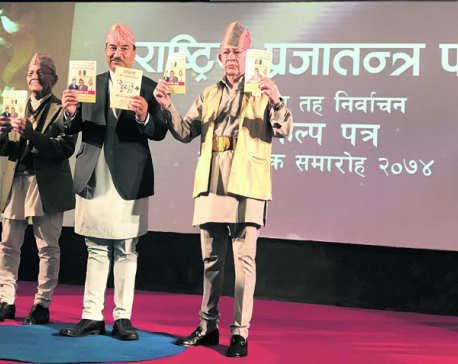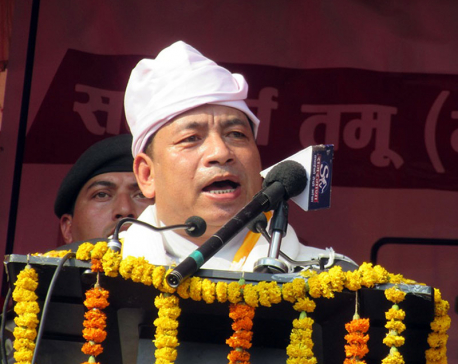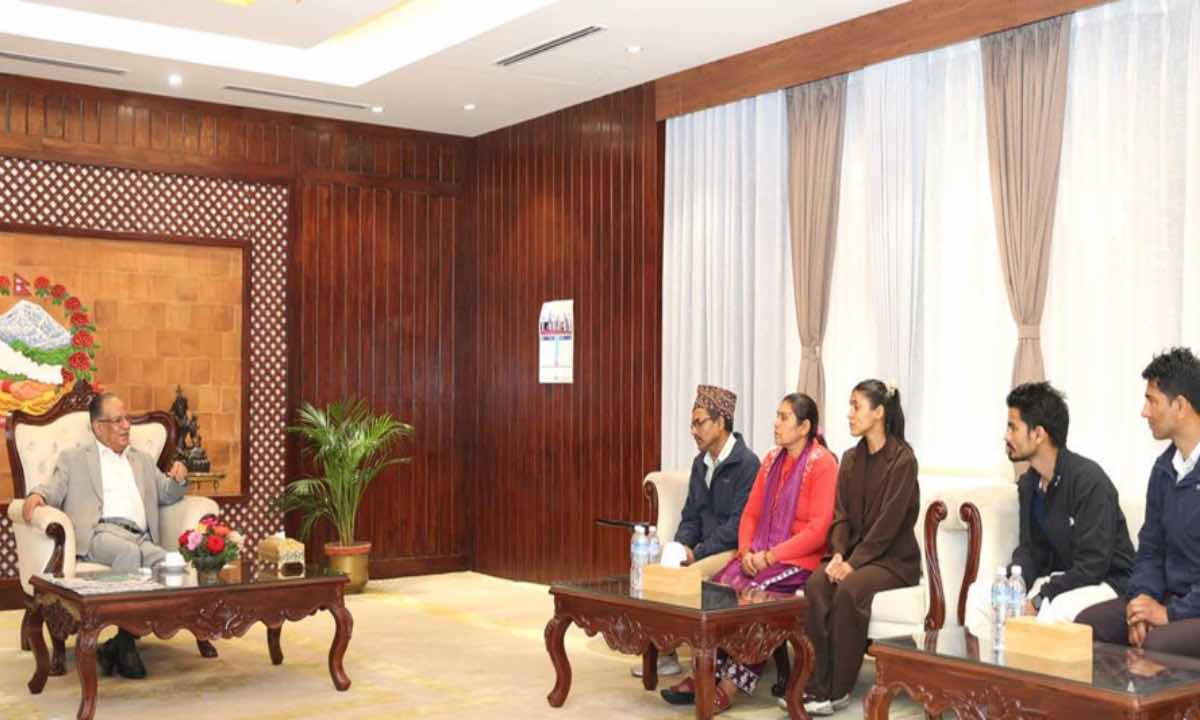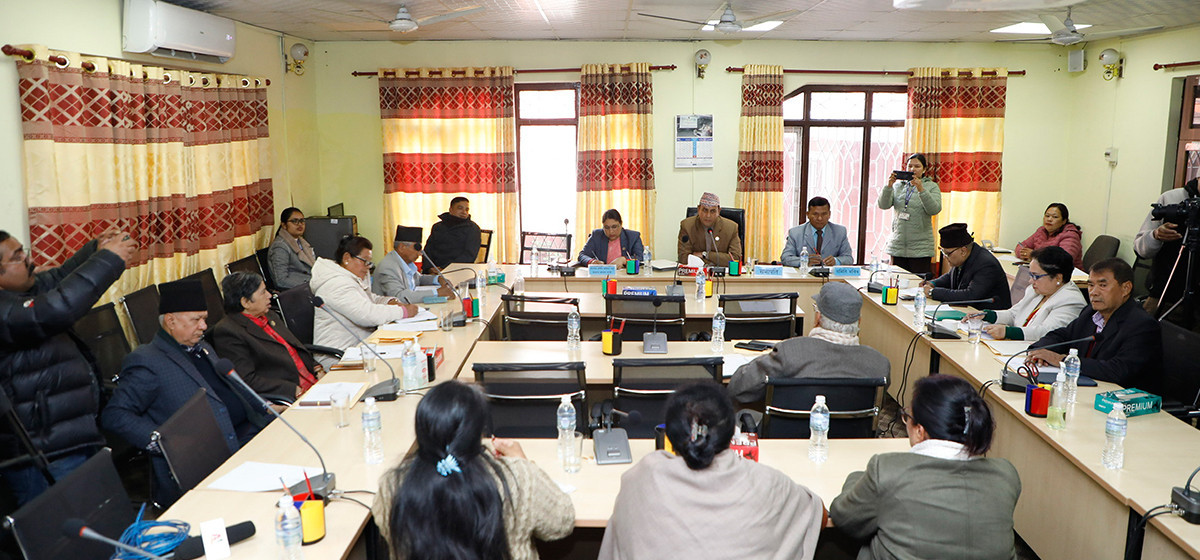
OR
NC election manifesto for local polls puts focus on economic prosperity
Published On: April 26, 2017 08:01 AM NPT By: Kosh Raj Koirala | @KoshRKoirala
KATHMANDU, April 25: Nepali Congress (NC) has announced an ambitious plan to reduce the percentage of people living below poverty line to 3 percent of the total population in the next 10 years.
Unveiling the party’s election manifesto for the upcoming local level polls amidst a special function held at the party’s headquarters in Sanepa on Tuesday, the NC announced to bring down the poverty level to 3 percent from the current 21 percent. The NC is the first among all political parties to publicize its election manifesto for the upcoming local level elections.
While making its commitment to transform Nepal as a middle-income earning, entrepreneurship-friendly and dynamic state, the NC has announced to achieve double-digit growth rate in terms of Gross Domestic Product (GDP) by bringing in foreign direct investment of Rs 100 billion a year. The party said this will generate employment opportunities to over 300,000 people in 10 years with the help of both foreign and domestic investment.
In the election manifesto unveiled by party President Sher Bahadur Deuba, the NC has given top importance to infrastructure development. The party announced its plan to generate at least 10,000 mega watt electricity and construct over 10,000 kilometers of four to six lanes express-ways including Kathmandu-Madhes expressway in the next 10 years.
Likewise, it also announced to construct over 500-kilometer long railway line and over 50,000 kilometers blacktopped road and tunnels in the same period. The party has announced to develop irrigation facility for over 1.8 million hectares of land in the hills as well as the Tarai-Madhes.
Laying strong focus on the country’s economic prosperity, the NC has also announced to bring four additional international airports in operation and bring in over 3.2 million tourists a year. This, according to the NC, will provide direct or indirect employment to over 4 million Nepalis.
In its vision of Nepal in the next 10 years, the NC has promised to increase literacy rate to 95 percent, increase access of mobile and internet, make the country reliant on vegetables and cereals and to reduce maternal mortality rate.
While giving a brief overview of the NC’s manifesto, NC leader Mahesh Acharya, who headed the manifesto drafting committee, said that the NC has set targets that are achievable in the next ten years time.
“They are not just commitments. They are the promises of the party. We have ample reasons to believe that these targets can be achieved,” said Acharya.
Besides the vision of Nepal in the next 10 years’ time, the NC has also presented a 25-point vision of local government in the manifesto unveiled on Tuesday. “We have announced the plans for local government while taking into account the powers that the new constitution has given to the local government,” Acharya further said.
In its vision for the local government, the NC has promised to ensure at least one 15-bed hospital in each rural municipality, blacktopped road connecting all wards and villages, and bank accounts for all those above 16 years of age with banking facility in each village.
Likewise, the NC has said that it would build integrated elderly homes, promote access of smartphones, wifi, internet and library in villages, and establish integrated service centers that would provide services related to agriculture, animal husbandry, drinking water, tourism, industry and business. Among other things, the party has announced to ensure electricity, clean energy, children’s park, services of fire brigade and ambulance, where ever possible, and promote disabled-friendly infrastructures.
Speaking on the occasion, NC President Deuba said that the main thrust of the election manifesto is how to strengthen local democracy. “Now it is the people in the village who will take decision on their own development. This has clearly given the message that the development of villages is not possible through Singha Durbar, the principal secretariat of the government in Kathmandu,” he said.
You May Like This

RPP unveils election manifesto for local polls
KATHMANDU, April 26: Unveiling the party’s election manifesto for the upcoming local level poll, the ruling Rastriya Prajatanta Party (RPP) has... Read More...

Country should focus its attention on economic prosperity, says VP Pun
KATHMANDU, Jan 15: Vice-President Nanda Bahadur Pun has said that the country should focus its attention on building a prosperous... Read More...

NC district chiefs suggest interim local polls
KATHMANDU, Aug 13: Nepali Congress district presidents have suggested to the party's leaders to stand for holding interim local elections,... Read More...




Just In
- Chemical fertilizers imported from China being transported to Kathmandu
- Man dies in motorcycle accident in Dhanusha
- Nepal face early setback as four wickets fall in powerplay against UAE
- Australian unemployment rate rises to 3.8 percent in March
- Gold price increases by Rs 700 per tola
- Fire destroys wheat crop in Kanchanpur, Kailali
- Bipin Joshi's family meets PM Dahal
- State Affairs and Good Governance Committee meeting today














Leave A Comment